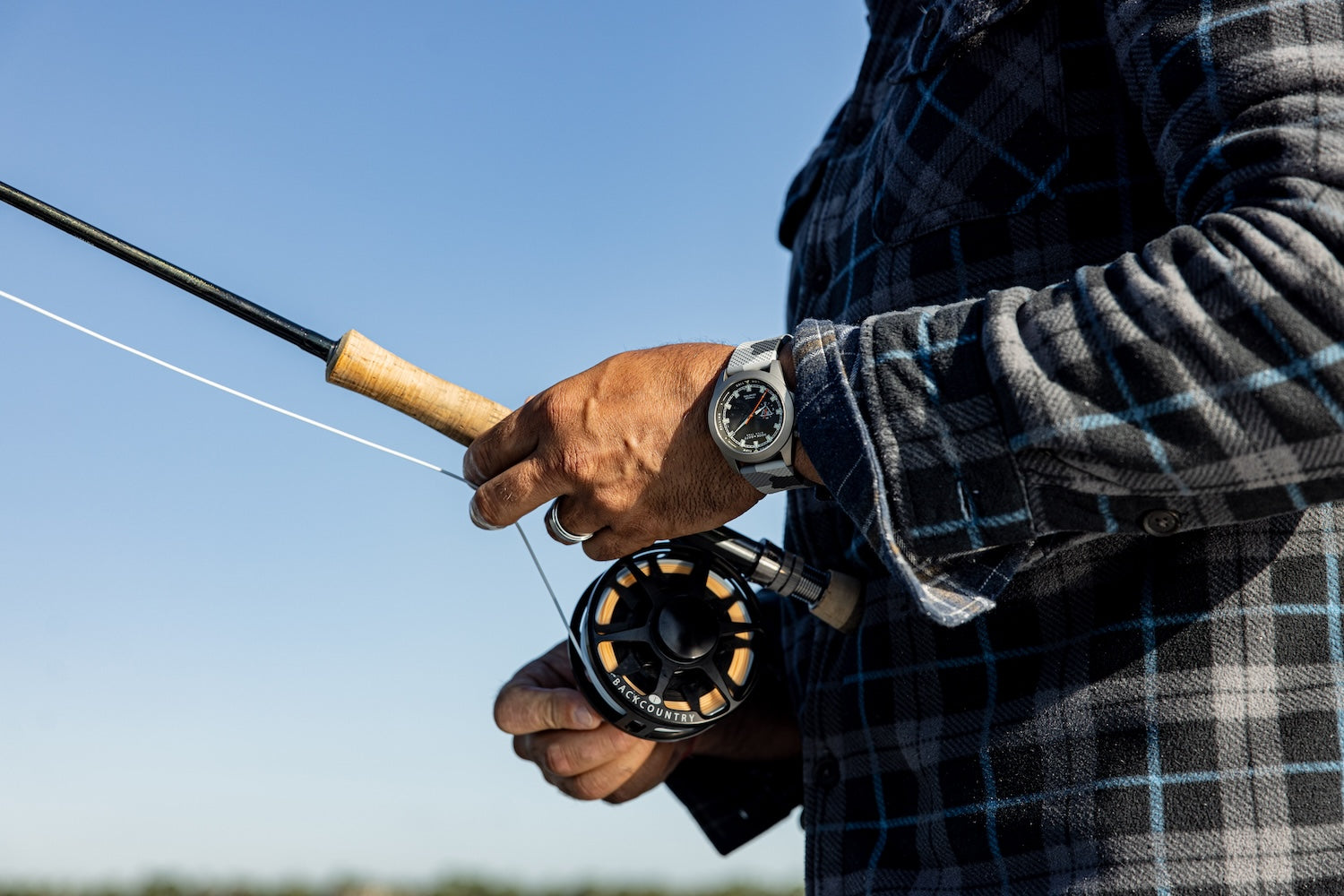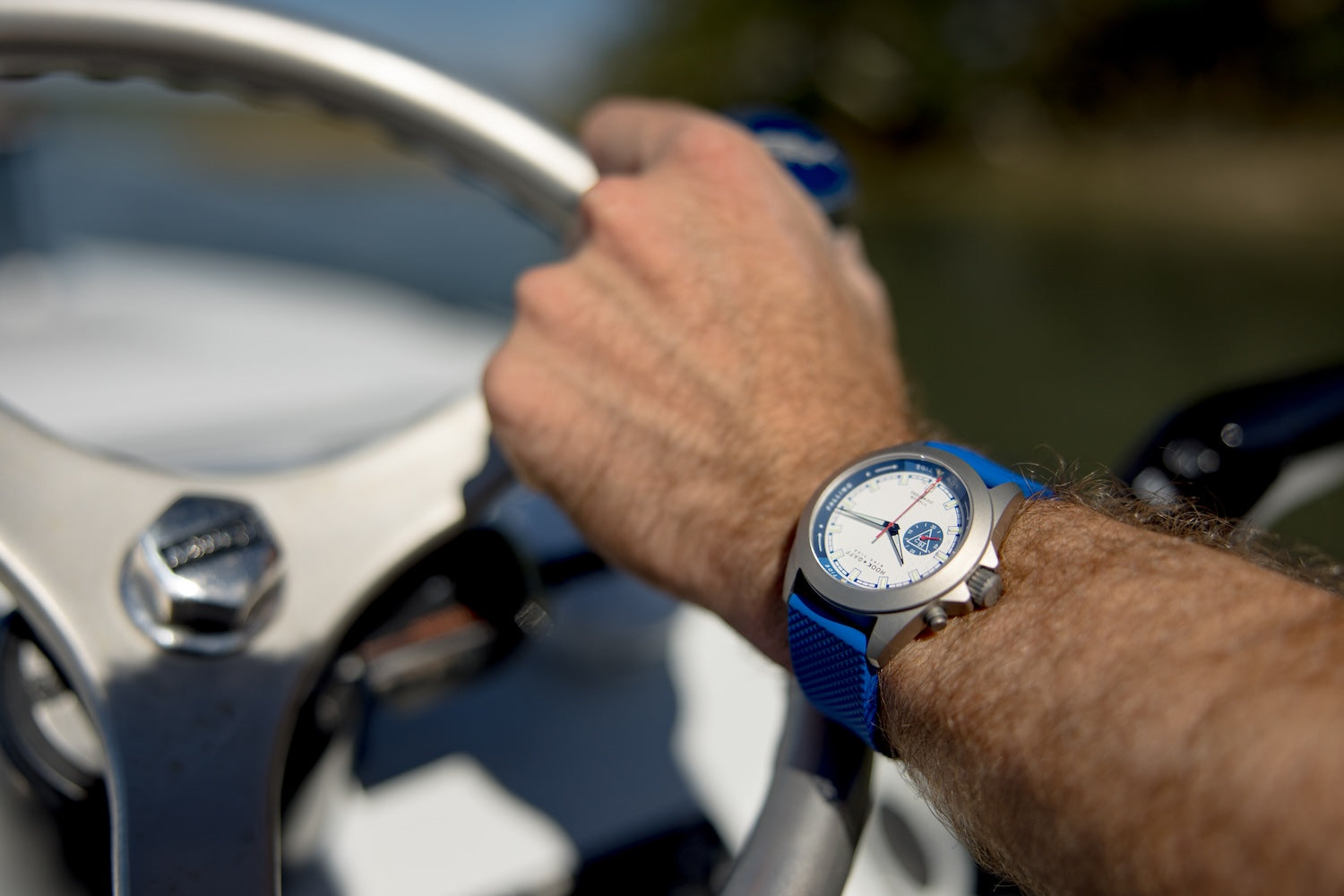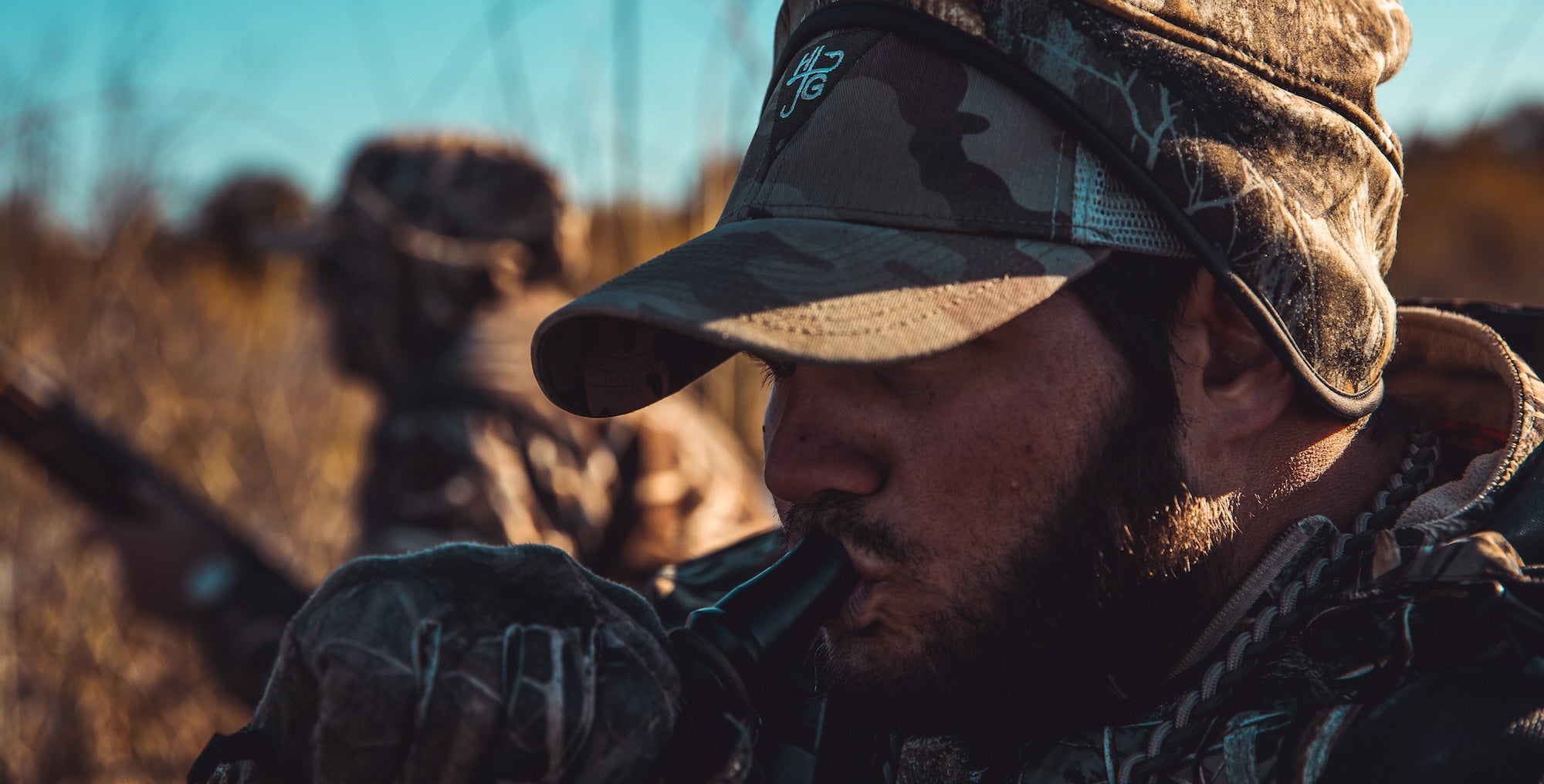We spoke with with Ozzie Martinez, founder and president of Operation WetVet, about his organization, its mission and some if its recent activities. Here’s what he had to say:
1. Ozzie, tell us about yourself and why you chose to start Operation WetVet.
Sure! My name is Ozzie Martinez, and I served in the USMC from 2002 to 2006, with two deployments to Iraq. The guys in my unit, and all the guys I served with, are like family to me. Several of us suffered, both abroad and at home. As a disabled veteran, I can identify with the struggles of our servicemen and women who are coming home and dealing with the effects of PTSD. Hook+Gaff owner Michael Sims is a good friend, and when we were filming, he asked me about the struggle during this offshore trip. He asked me if servicemen and women are coming home to find that the average citizens who’ve never served are living in this bubble here in the US — like they are going about their everyday lives, and they have no idea what horrors exist on the other side of the Atlantic. And the truth is, that’s not it at all. I responded that the veterans themselves are in the bubble. We come home and struggle with survivor’s guilt. We ask ourselves, “Why me? Why was I able to survive? How am I the one who gets to go back to my life, but my best friend can’t?” That’s the struggle! And it’s real! And it’s not being dealt with very effectively, unfortunately. Every combat veteran struggles with this in some way, and for a lot of guys, the struggle is too much. We see 22 veterans taking their own lives every day.
I founded Operation WetVet, a 501c3 nonprofit out of Miami, on June 1, 2015. I did this for a reason — June is national PTSD Awareness Month. Operation WetVet is dedicated to helping combat-disabled veterans suffering from PTSD and TBI (traumatic brain injury) create new memories in a safe, calming environment centered around camaraderie, fishing and other water activities. In dealing with PTSD myself, I found in offshore fishing that I suddenly would get the adrenaline rush that servicemen feel in combat, just by hooking up with a big sailfish or game fish. The guys on the deck start moving, and it’s a little bit chaotic, but you have to get organized and you have to be disciplined to land the fish. I’m teaching guys that they can channel this adrenaline and achieve positive results. For many guys struggling with PTSD, the adrenaline is more than they can handle alone, in a bar or looking at old pictures. The adrenaline takes over — it is often not channeled in a positive way, and it can lead to feelings of grief, anger and guilt. We are changing this. I’m not able to save all veterans, but if I can take a few of these guys out on the water each month and show them support, show them how to channel their adrenaline into a positive with other guys who are learning to do the same thing, maybe I save a veteran. Maybe I save one of my friends from biting a bullet. And hey, that’s enough. That’s enough for me.

2. What brought Operation WetVet from sunny South Florida all the way up to Charleston?
Hook+Gaff has been one of our sponsors from the beginning, and we’ve been planning to do a trip in the Carolinas for a while. The captain for Little Less Talk Charters in Charleston wanted to donate a trip with his other buddy, so we put together a group of USMC veterans — some were Purple Heart recipients — to go on a trip and invited Michael and Gash (Clayton, of Hook+Gaff) to jump on board and experience the camaraderie themselves. With the base being at Parris Island near Beaufort, a lot of the USMC guys are living right here in the Carolinas. It was not hard finding guys who wanted to fish, I’ll tell you that!
Our captain has already committed to May next year, and since May is normally a great dolphin month off Charleston, we will definitely be back. So this is the first of an event we plan on hosting every year in Charleston called the "Operation WetVet Dolphin Smackdown.” We have two commitments for donated trips from captains already, and we are going to line up a few more boats and make this a huge event in 2018.
3. Tell us about the guys on the trip!
We had eight combat veterans total — five of them Purple Heart recipients. All veterans on this particular trip were from the Carolinas, which was very cool. One of our guys, USMC Gunnery Sergeant Dallas Jones, is a Purple Heart recipient and still active-duty. He and I actually served together in Iraq.
4. You talked a little bit about the action on the boat and how you are able to teach these guys to channel their adrenaline positively. In what other ways can fishing be therapeutic for combat veterans with PTSD?
Well, it’s pretty simple. Research has proven that the sea helps us restore our physical, mental and emotional well-being. This is true for any person. A 2012 article by a researcher stated that seawater strengthens the body against viruses, bacteria and pathogens. Seawater in particular assists in strengthening the cellular immunity. Other research shows that there are multiple benefits of being by the sea — for example, the sound of the crashing sea waves has a healing effect on our mind and body as it induces deep states of relaxation. These are added therapeutic benefits to getting these guys out on the water.

5. Well, tell us about the trip! How did it go?
Awesome! Charleston lived up to expectations, although they said it was not uncommon to catch 30+ dolphin in a day! We didn’t quite see those numbers, but we saw plenty of action, and everyone on the boat got in on it. We didn’t have lines out for 5 minutes before we heard the drag scream and saw line peeling, and it started off with Dallas Jones taking a seat and reeling on it. We never saw the fish breach the surface and never saw color until he got within 20 feet of the boat, so we assumed it was a big bull dolphin that had gone down and hadn’t surfaced. When he got close, we saw it was a wahoo! He was hooked on mono, and we hooked him in the only corner of his toothy mouth where he couldn’t bite through the leader. It was actually a pretty nice-sized wahoo, and we gaffed it and got it in the boat, and it was high-fives all around. We captured it in photos and videos, and Dallas was stoked. His first wahoo!
Then it wasn’t very long before we heard drag peeling again. Fellow Marine Corps veteran and Purple Heart recipient Chris Propst jumped on the rod, and we saw green-and-yellow 150 yards out, jumping like a bull in a rodeo. When we got it in the boat, we realized it was a very nice fish. We caught a few more dolphin before it was all said and done. I jumped in and landed one. But Dallas stole the show when he hooked up with his first-ever sailfish! We kite fish in South Florida, so seeing a sailfish come up on the teaser when trolling was an experience for me. Dallas jumped in the chair. While he was reeling on it, the sail caught air on numerous occasions, putting on a tailwalking show. We got some great footage. When we billed the fish, he was able to lean over the side of the boat, and we snapped a few pictures of him with the sailfish.

When we got back, we had a blast telling stories about the day. We had a meal together, and Hook+Gaff donated watches to all the guys. I tell you what — I really can't wait to start planning next year’s event! This is great for the guys, and I think it creates feel-good moments for everyone — the captains who are donating the trips, the veterans on the boat, the people involved with putting together meals. It’s just a good cause, and I know we’re all doing something that is going to make a difference in someone’s life. That’s the truth.
For more information about Operation WetVet, check out their Man on a Mission Page!




